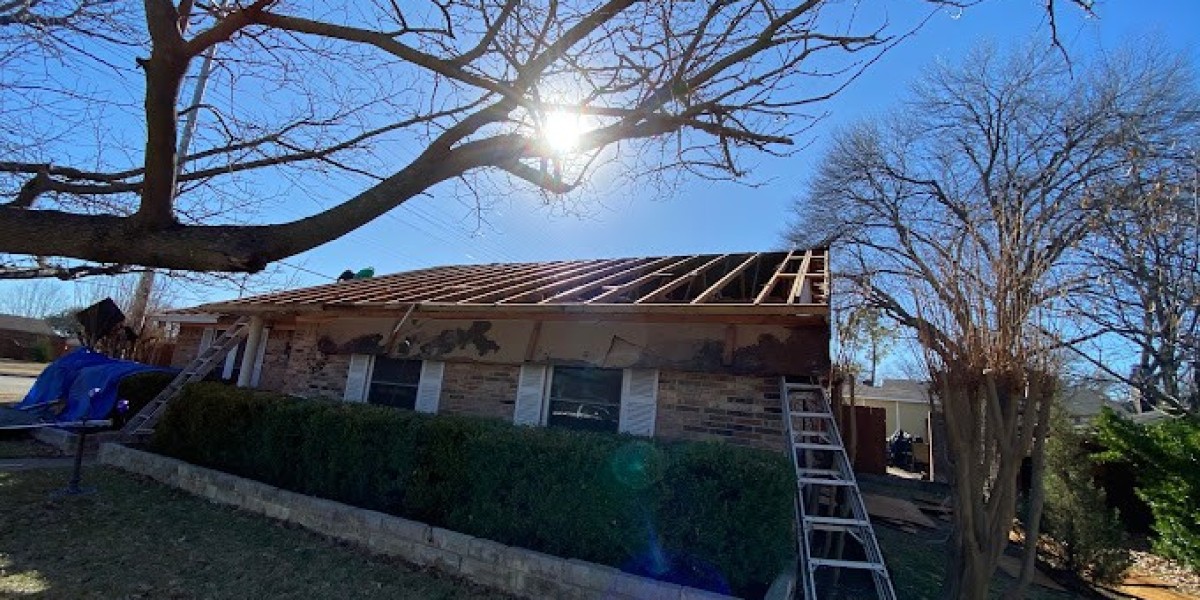When considering the health of your home, roof inspections in Dallas are a critical aspect that shouldn't be overlooked. A well-maintained roof not only protects your home from the elements but also enhances its aesthetic appeal and market value. Understanding what to expect during a professional roof inspection can help you prepare and ensure that your roofing system remains in top condition.
Initial Consultation and Visual Inspection
The process begins with an initial consultation, where the roofing contractors will discuss your concerns and any visible issues you may have noticed. A comprehensive visual inspection follows this. The contractor will walk around your property, checking the roof from the ground for any apparent signs of damage, such as missing shingles, sagging areas, or visible wear and tear. They will take note of any areas that may need a closer look once they get on the roof.
Climbing Up for a Closer Look
Next, the roofing contractor will climb onto the roof for a closer examination. They will inspect the shingles for signs of damage or aging, such as curling, blistering, or missing shingles. The contractor will also check for any signs of algae or moss growth, which can indicate moisture problems. Flashings around chimneys, vents, and skylights will be closely inspected to ensure they are intact and not allowing water to penetrate the roof.
Checking the Roof's Structure
A critical part of the inspection is assessing the roof's overall structure. The contractor will look for signs of sagging or uneven areas that could indicate a problem with the underlying support structure. They will also inspect the attic space, if accessible, to check for any signs of water damage, proper ventilation, and insulation. Poor ventilation can lead to moisture buildup and increase the risk of mold growth.
Inspecting Gutters and Downspouts
Gutters and downspouts play a crucial role in directing water away from your roof and foundation. During the inspection, the contractor will check for any blockages, damage, or sagging in the gutter system. They will also ensure that the downspouts are properly directing water away from the foundation to prevent potential water damage.
Examining Roof Penetrations
Any penetrations in the roof, such as chimneys, skylights, or vents, are potential weak points where water can enter. The roofing contractor will carefully inspect these areas to ensure that they are properly sealed and flashed. Any signs of leaks or water damage around these penetrations will be noted and addressed.
Evaluating the Roof's Age and Materials
The age of your roof and the materials used are significant factors in determining its condition. The contractor will evaluate the type of roofing material and estimate its remaining lifespan. They will also consider the age of the roof and any previous repairs or maintenance that have been performed. This information helps in planning future maintenance or replacement.
Documenting and Reporting Findings
After completing the inspection, the roofing contractor will document their findings and provide you with a detailed report. This report will include photos of any damage or areas of concern, along with recommendations for repairs or maintenance. The contractor will discuss their findings with you and answer any questions you may have.
Follow-Up and Maintenance Plan
Based on the inspection report, the contractor will recommend a maintenance plan tailored to your roof's specific needs. This may include minor repairs, cleaning, or more extensive work if necessary. Regular maintenance is crucial to prolonging the lifespan of your roof and preventing costly repairs in the future.
Choosing the Right Roofing Contractor
Selecting the right roofing contractors in Dallas is essential to ensure a thorough and accurate inspection. Look for contractors with a solid reputation, proper licensing, and insurance. It's also beneficial to read reviews and ask for references from previous clients. A professional contractor will provide a transparent and detailed inspection process, helping you maintain the integrity of your roof.
Benefits of Regular Roof Inspections
Regular roof inspections offer numerous benefits, including early detection of problems, increased lifespan of your roof, and potential savings on repair costs. By addressing minor issues before they become major problems, you can avoid extensive damage and costly repairs. Regular inspections also help maintain the aesthetic appeal and value of your home.
Understanding Common Roofing Issues in Dallas
Dallas's climate presents unique challenges for roofing systems. The hot summers, occasional severe storms, and potential hail damage can take a toll on your roof. During the inspection, the contractor will look for common issues such as heat damage, storm-related damage, and signs of wear from exposure to the elements. Understanding these common problems can help you stay proactive in maintaining your roof.
Preparing for Severe Weather
Dallas is prone to severe weather events, including thunderstorms and hailstorms. A professional roof inspection can help you prepare for these events by identifying any vulnerabilities in your roof. Ensuring that your roof is in good condition before a storm hits can prevent significant damage and protect your home.
Scheduling Your Roof Inspection
To ensure your roof remains in optimal condition, it's recommended to schedule a professional roof inspection at least once a year, preferably in the spring or fall. This allows you to address any issues before the extreme weather of summer or winter. Additionally, scheduling an inspection after a major storm can help identify and repair any damage promptly.
Final Thoughts
A professional roof inspection is a vital part of maintaining your home's health and longevity. By understanding what to expect during the inspection process, you can ensure that your roof remains in excellent condition and continues to protect your home. Whether you're dealing with aging shingles, potential storm damage, or routine maintenance, a thorough inspection by experienced roofing contractors in Dallas will provide peace of mind and safeguard your investment.
What are the benefits of a professional roof inspection?
A professional roof inspection helps identify potential problems early, prolongs the lifespan of your roof, and can save you money on future repairs. It ensures your roof is in good condition and capable of protecting your home from the elements.
How often should I have my roof inspected?
It's recommended to have your roof inspected at least once a year, preferably in the spring or fall. Additionally, an inspection should be scheduled after any major storm to check for potential damage.
What should I look for when choosing a roofing contractor?
Look for a roofing contractor with a solid reputation, proper licensing, and insurance. Reading reviews and asking for references from previous clients can also help you make an informed decision.
What common issues do roof inspections in Dallas typically find?
Common issues include heat damage, storm-related damage, and wear from exposure to the elements. Roofing contractors will also check for signs of aging, leaks, and structural problems.
Can I perform a roof inspection myself?
While you can perform a basic visual inspection from the ground, it's best to hire a professional for a thorough inspection. Professionals have the experience and equipment to safely and accurately assess your roof's condition.
How can I prepare my roof for severe weather?
A professional roof inspection can identify and address vulnerabilities before severe weather hits. Ensuring your roof is in good condition can prevent significant damage during storms.
What happens if issues are found during the inspection?
The roofing contractor will provide a detailed report of their findings, including photos and recommendations for repairs or maintenance. Addressing these issues promptly can prevent further damage and costly repairs.
Is regular roof maintenance necessary?
Yes, regular maintenance is crucial to prolonging the lifespan of your roof and preventing costly repairs. Following a maintenance plan tailored to your roof's specific needs can help maintain its integrity and value.
4o



